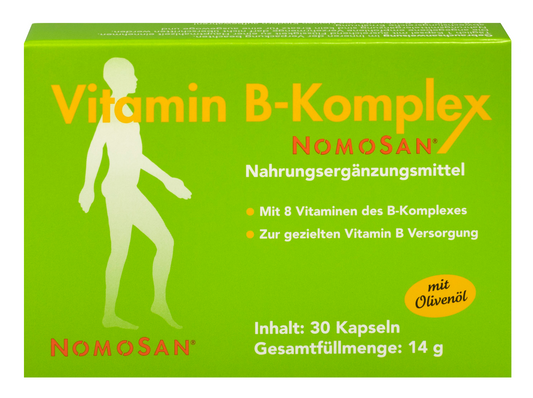Magnesium (Mg²⁺) is an essential mineral for the human body and plays a central role in supporting and maintaining health and life. As the second most abundant intracellular cation after potassium, it is involved in over 600 enzymatic reactions, including energy metabolism and protein synthesis. In this blog post, we provide a comprehensive overview of the importance of magnesium for human health.
The importance of magnesium in the body
Magnesium is a cofactor in numerous biochemical reactions involving protein synthesis, muscle and nerve function, blood sugar control, and blood pressure regulation. It contributes to energy production, oxidative phosphorylation and glycolysis, and plays a key role in the structural development of bones. Magnesium is also required for the synthesis of DNA, RNA, and the antioxidant glutathione. It helps in the active transport of calcium and potassium ions across cell membranes, a process important for nerve impulse conduction, muscle contraction, and normal heart rhythm.
An adult body contains about 25 grams of magnesium, with 50% to 60% found in bones and the rest in soft tissues. Less than 1% of total magnesium is found in blood serum, and these levels are tightly controlled. Normal serum magnesium concentrations are between 0.75 and 0.95 millimoles (mmol)/L.
The role of magnesium in various organs
Brain : Magnesium is crucial for neuronal function and may be helpful in treating migraines, depression, and other neurological disorders. Magnesium helps regulate neuronal excitability and is involved in synapse function, which is important for learning and memory.
Heart : Magnesium supports the maintenance of a normal heart rhythm and may be beneficial in the prevention and treatment of coronary heart disease. It helps regulate blood pressure and supports the function of the heart muscles.
Skeletal muscle : Magnesium is important for muscle contraction and relaxation. A deficiency can lead to muscle cramps and weakness. Magnesium is also used in the treatment of conditions such as asthma because it can relax the smooth muscles of the airways.
Magnesium absorption and metabolism
Magnesium is absorbed primarily in the small intestine, with the rate of absorption depending on the magnesium concentration in the diet. The kidneys play a central role in regulating magnesium levels by excreting excess magnesium. Bone serves as a magnesium reservoir that can be mobilized when needed.
Assessing magnesium status is challenging because most magnesium is stored intracellularly or in bone. The most common method for assessing magnesium status is measuring serum magnesium concentration, although this method provides limited information about total body magnesium content. Other methods include measuring magnesium concentration in red blood cells, saliva, and urine, and performing a magnesium loading test.
Recommendations for magnesium intake
A balanced diet rich in magnesium-containing foods is crucial for maintaining healthy magnesium levels. Foods such as nuts, seeds, green leafy vegetables, whole grains and legumes are excellent sources of magnesium. Regular consumption of these foods can help meet daily magnesium needs.
For people who have difficulty getting enough magnesium through their diet, supplements can be a helpful option. Organic magnesium citrate is an excellent choice due to its high bioavailability and good tolerability.
Natural recipe to increase magnesium absorption: Green smoothie
A green smoothie is a great way to get magnesium naturally. Here's a simple recipe that's rich in magnesium and other important nutrients:
Ingredients :
- 1 banana (rich in magnesium and potassium)
- 1 handful of spinach (contains a lot of magnesium)
- 1 cup almond milk (a good source of magnesium)
- 1 tablespoon almond butter (rich in magnesium)
- 1 teaspoon chia seeds (contains magnesium and fiber)
- 1 teaspoon honey (optional, for sweetness)
- 1/2 cup ice cubes
Preparation :
- Place all ingredients in a blender.
- Blend on high speed until the smoothie reaches a creamy consistency.
- Pour into a glass and enjoy immediately.
Not only is this smoothie delicious, it's also an excellent source of organic magnesium. It's perfect for breakfast or as a nutrient-rich snack.
Conclusion
Magnesium is an essential mineral that plays a key role in many physiological processes. Its importance for health cannot be overstated. Organic magnesium citrate is an effective and well-tolerated form of supplementation. By combining a balanced, magnesium-rich diet with supplementation with magnesium citrate where necessary, you can ensure that your body is optimally supplied and that you can enjoy the many benefits of this essential mineral.
Discover our nutritional supplements with magnesium citrate here :
NOMORHE® COR – Nomosan Nutraceuticals
NOMOADULT® Q10 – Nomosan Nutraceuticals
Sources :
- "Magnesium: Health Professional Fact Sheet," National Institutes of Health (NIH)
- "Magnesium," Harvard T.H. Chan School of Public Health
- "The importance of magnesium for health," German Nutrition Society (DGE)
- "Magnesium and Human Health: Perspectives and Research Directions," American Society for Nutrition
- "Magnesium in Human Health and Disease," Advances in Clinical Chemistry

